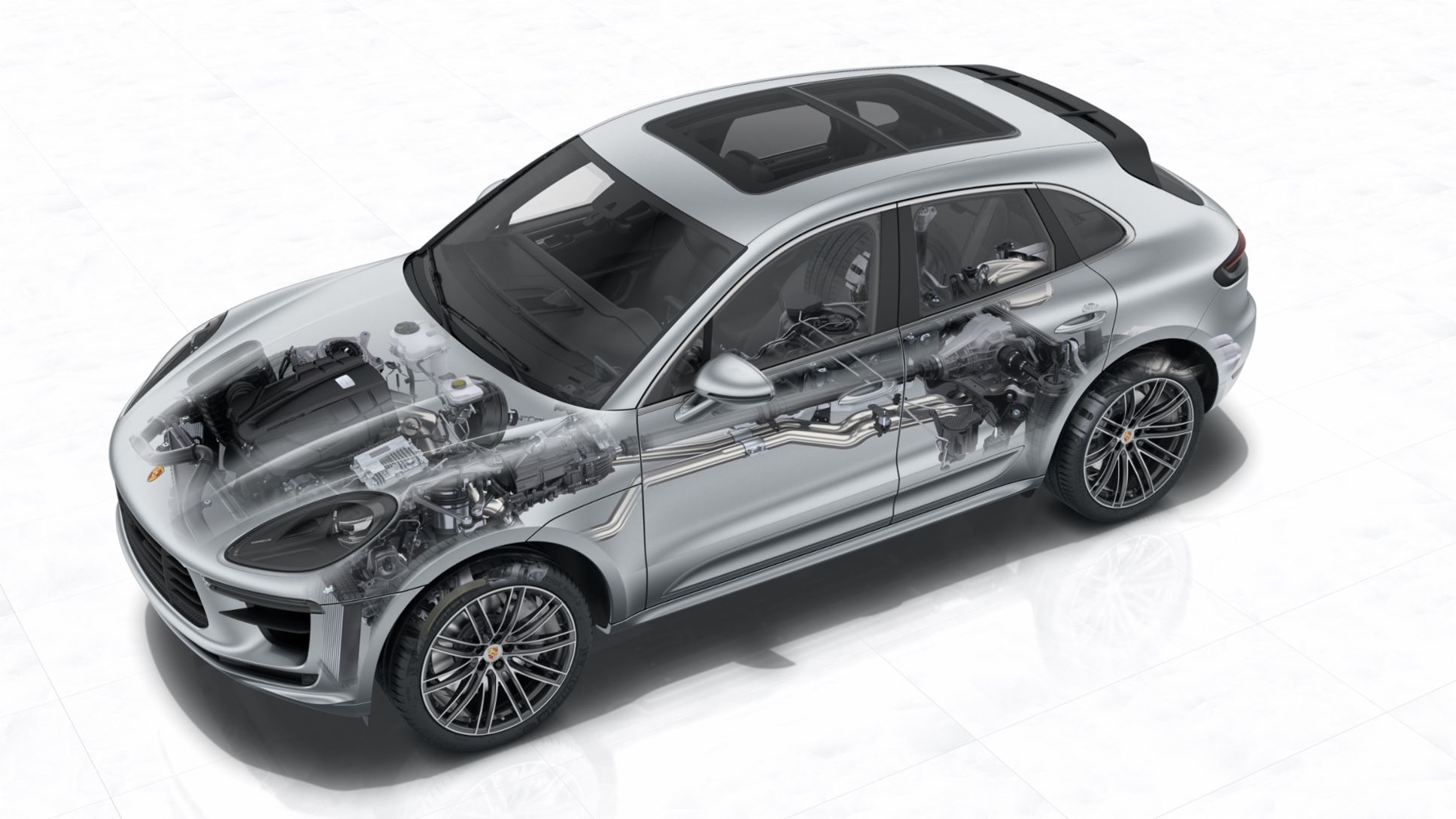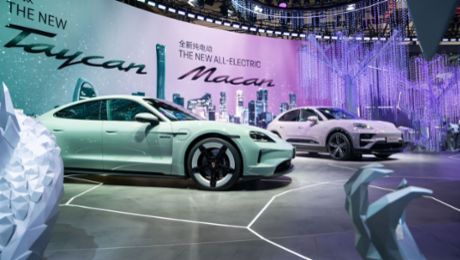Macan Turbo: Fuel consumption combined 9.8 l/100 km; CO₂ emissions combined 224 g/km
The chassis engineers looked at every component to see where it could be improved for the facelift of the Macan. With detailed improvements and a completely new set-up, the new Macan Turbo once again raises the bar for dynamic drivers. The new engine mount with a new driving dynamics support ensures an even better connection between the engine and chassis, with engine roll on its mounts more effectively suppressed under load. This also influences handling when cornering. The steering is more direct and agile on turn-in and, when accelerating out of a bend, the relative lack of movement of the engine results in a significantly reduced effect on handling. This keeps the Macan more stable and the cornering forces of the outer tyres can be used in a more controlled manner.
The new Macan Turbo comes with the Porsche Surface Coated Brake (PSCB) system as standard to complement the excellent driving dynamics. These innovative, high-performance brakes are exclusive to Porsche and, with a tungsten carbide coating on the discs, offer a faster response, increased friction, less wear and up to 90 per cent less brake dust compared to conventional cast iron brakes. Stable braking, even under extreme loads, is ensured by 390 millimetre discs on the front axle and 356 millimetre discs at the rear. PSCB, with its characteristic high-gloss brake discs and white-painted brake callipers, is now available as an optional extra on all other Macan models as well.
20-inch wheels with mixed tyres as standard
All new models in the Macan range now have improved brake pedal feel. What is known as an organic sheet pedal is made of moulded, fibreglass-reinforced thermoplastic sheet material with a back-injected plastic rib structure. It weighs around 300 g less than the previous steel part and acts on the brake master cylinder via a shortened lever arm. This results in more immediate brake response, and the driver can also feel a very precise pressure point because of the firm connection. Keen drivers in particular will value this optimised feedback.
The Macan Turbo chassis with steel suspension and active Porsche Active Stability Management (PASM) damper system, which has been calibrated to sports car standards, has been completely overhauled. As with the other Macan models, the flagship Turbo features lighter aluminium spring forks. These are spread over the driveshafts and connect the springs and dampers to the front-axle carrier. The new light alloy design is more rigid and reduces the unsprung masses by around 1.5 kg. This results in more precise steering and a more comfortable ride. In addition, the newly tuned anti-roll bars, based on the improved spring characteristics, enhance the driving experience through a more neutral response while offering unchanged stability and improved comfort. The Turbo is now available with 20-inch wheels with mixed tyres as standard. Macan Turbo alloy wheels are 9 inches wide on the front axle and 10 inches on the back. Newly developed tyres with improved performance characteristics, especially in terms of lateral dynamics, are 265/40 at the front and 295/40 at the rear.
Height-adjustable air suspension, with optimised rolling pistons and new shock absorber hydraulics, Porsche Torque Vectoring Plus (PTV Plus), the Porsche Ceramic Composite Brake (PCCB) system, and up to 21-inch alloy wheels are available as options for a further improvement in driving dynamics



.jpg/jcr:content/DR.BLUME_PK_TAYCAN_4S%20(3).jpg)